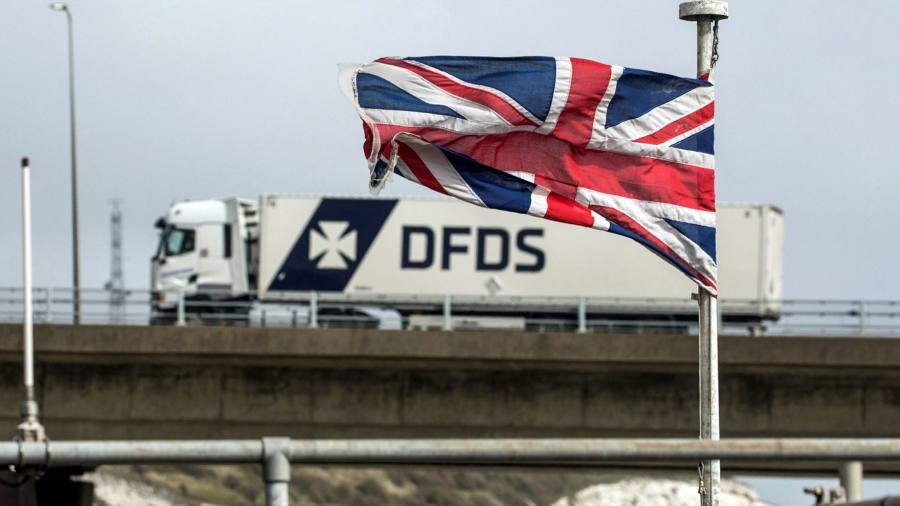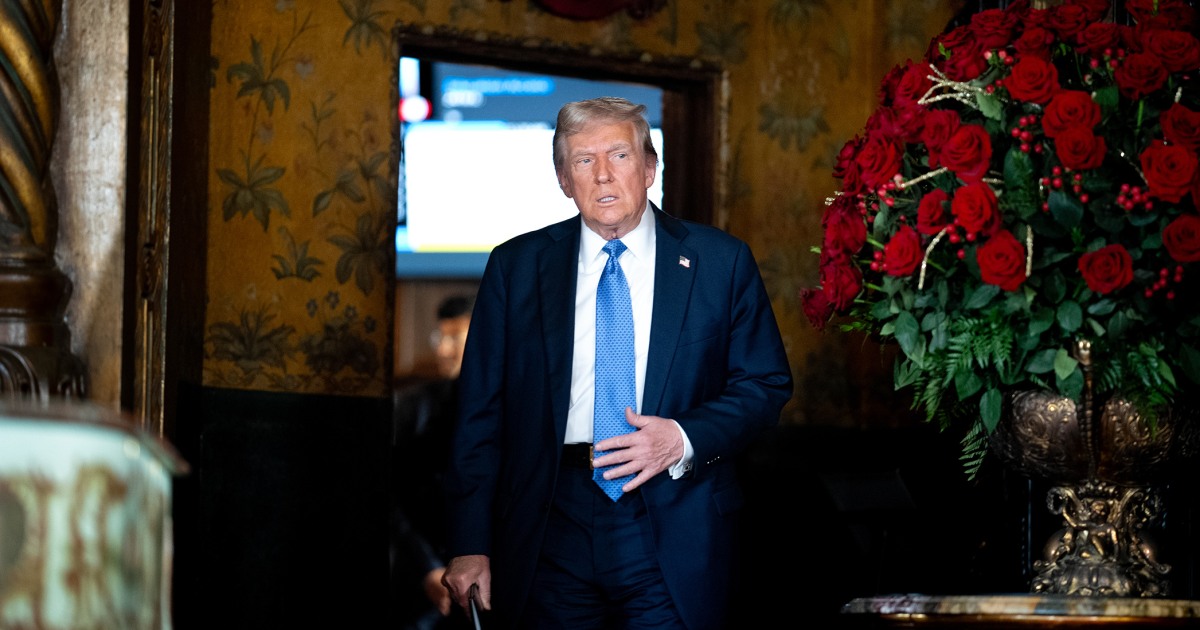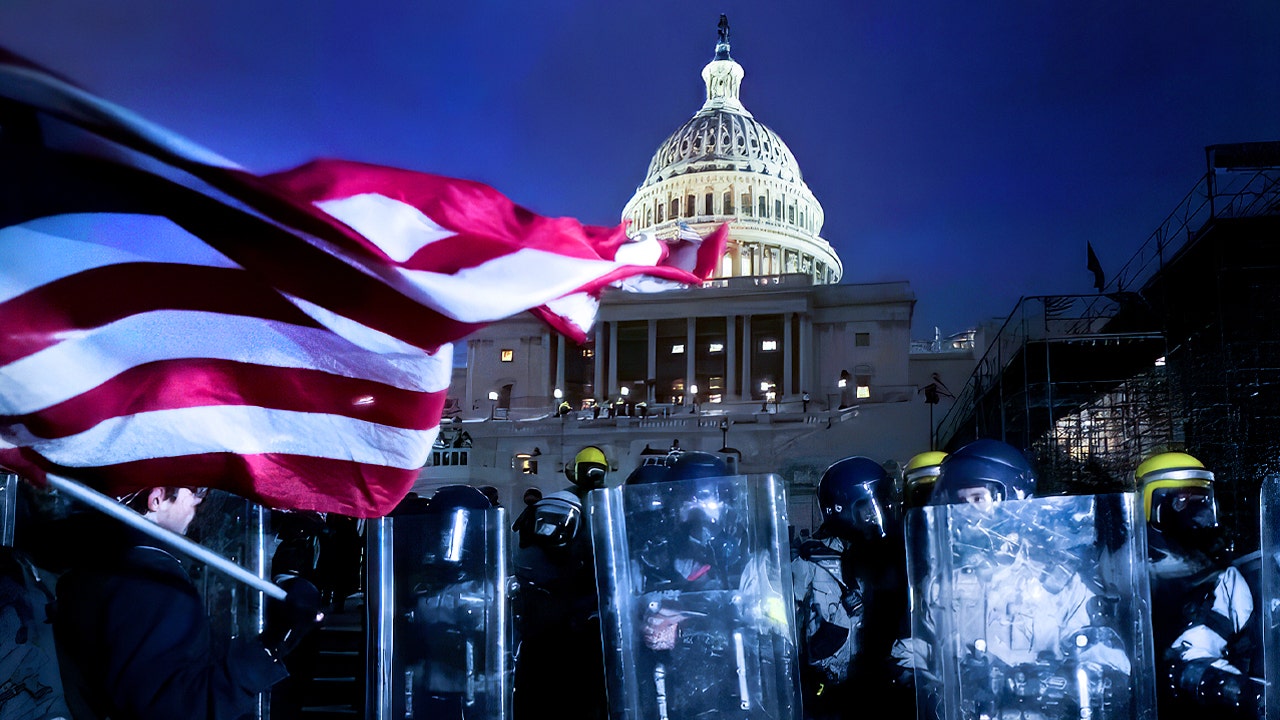The man who allegedly drove into a crowd of people at a Christmas market in the east German city of Magdeburg on Friday evening, killing four people, is a 50-year-old doctor from Saudi Arabia who came to Germany in 2006, according to authorities.
Reiner Haseloff, prime minister of the eastern state of Saxony-Anhalt, said the alleged perpetrator, Taleb al-Abdulmohsen, was not known to the police as an Islamist.
Al-Abdulmohsen’s profile on social media site X indicates that he is a fierce critic of Islam.
German media reported that he is an activist who helped opponents of the regime in Saudi Arabia to flee the country and apply for asylum in Europe.
Abdulmohsen allegedly drove his black BMW X5 into the Christmas market in central Magdeburg shortly after 7pm on Friday evening, knocking over dozens of people before being arrested by police.
A video on social media showed officers surrounding him at a tram stop. He was seen lying on the ground next to his vehicle, a rented car with Munich number-plates, and later being led away for questioning.
Authorities in Saxony-Anhalt said four people died in the attack and more than 200 people were injured, 41 severely. Chancellor Olaf Scholz visited the scene of the attack on Saturday.
“This is a catastrophe for the city of Magdeburg and for the region and generally for Germany,” said Haseloff.
Since the incident, a number of interviews with the alleged perpetrator have resurfaced, including one in the Frankfurter Allgemeine Zeitung from 2019 in which he described himself as “the most aggressive critic of Islam in history”.
He has also expressed admiration for Alternative for Germany (AfD), a far-right, anti-immigration party which is polling second behind the centre-right CDU/CSU bloc ahead of Germany’s national elections in February, and accused Germany of not doing enough to fight Islamism.
“After 25 years in this business, you think nothing could surprise you any more,” wrote Peter Neumann, an expert in terrorism at King’s College, London, on X. “But a 50-year-old Saudi ex-Muslim who lives in East Germany, loves the AfD and wants to punish Germany for its tolerance towards Islamists — that really wasn’t on my radar.”
The incident comes almost eight years to the day since 12 people were killed and 49 injured in 2016 on Berlin’s Breitscheidplatz when an Islamic State terrorist ploughed a truck into a Christmas market.
Much remains unclear about al-Abdulmohsen and his possible motivation.
According to German media reports, the alleged attacker was born in the Saudi city of Hofuf and came to Germany in March 2006 to study. In July 2016 he was given refugee status after claiming he had received death threats for turning away from Islam.
Authorities said he worked as a psychiatrist and psychotherapist in Bernburg, a town of 32,000 between Halle and Magdeburg.
Spiegel Online reported that he was an activist who helped people — women in particular — to flee Saudi Arabia and ran an Internet site providing information about the German asylum system. In 2019 he gave interviews about his activities to two German newspapers in which he expressed his hatred for Islam.
In one, he said he had “broken away” from the religion in 1997.
“I found life in Saudi Arabia an ordeal, you have to pretend you’re a Muslim and follow all the rituals,” he said. “I knew I could no longer live in fear and when I realised that even anonymous activism would put my life in danger as a Saudi ex-Muslim, I applied for asylum.”
In the other, he said he had written posts criticising Islam in an internet forum run by the jailed activist Raif Badawi and subsequently received threats to his life.
“They wanted to “slaughter” me if I ever returned to Saudi Arabia,” he said. “It wouldn’t have made any sense to expose myself to the risk of having to return and then be killed.”
In recent months, he appeared to have moved away from activism and adopted a highly critical attitude to the German authorities that fed off conspiracy theories more often associated with the nationalist right.
In a post on X in November setting out the “demands of the Saudi liberal opposition” he called on Germany to “protect its borders against illegal immigration”.
“It has become evident that Germany’s open borders policy was [former chancellor Angela] Merkel’s plan to Islamise Europe,” he wrote. He also demanded Germany repeal sections of its penal code that he claims “limit . . . free speech” by “making it an offense [sic] to insult or belittle religious doctrines or practices”.
His X profile features a machine gun and claims “Germany chases female Saudi asylum seekers, inside and outside Germany, to destroy their lives”.
Earlier this month he was interviewed by an anti-Islam blog and accused the German authorities of carrying out a covert operation to hunt down Saudi ex-Muslims while granting asylum to Syrian jihadis.




















/cdn.vox-cdn.com/uploads/chorus_asset/file/25782636/247422_ChatGPT_anniversary_CVirginia.jpg)
/cdn.vox-cdn.com/uploads/chorus_asset/file/25789444/1258459915.jpg)

/cdn.vox-cdn.com/uploads/chorus_asset/file/25546252/STK169_Mark_Zuckerburg_CVIRGINIA_D.jpg)


/cdn.vox-cdn.com/uploads/chorus_asset/file/23951353/STK043_VRG_Illo_N_Barclay_3_Meta.jpg)